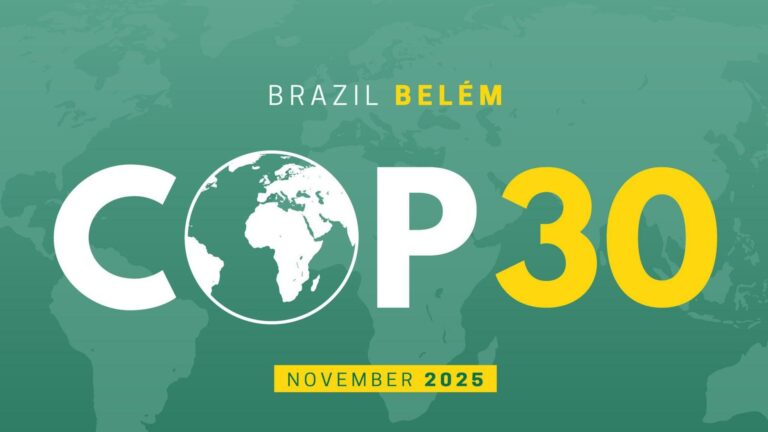As world leaders and climate experts prepare to convene for COP30 in Brazil, attention turns to the critical issues that will shape this year’s international climate negotiations. Set against the backdrop of the Amazon rainforest and growing environmental challenges, the summit promises intense discussions on global emissions targets, biodiversity preservation, indigenous rights, finance for climate adaptation, and the role of emerging technologies. Here are the five key issues to watch as COP30 seeks to advance global action on the climate crisis.
Key Climate Negotiations to Focus on at COP30 in Brazil
As delegates convene in Brazil for COP30, several critical discussions are poised to shape the global climate agenda. Among these, carbon market mechanisms will be under intense scrutiny, especially following controversies that marred previous frameworks. Negotiators will also tackle the imperative of accelerating emissions reductions, with developing nations pushing for greater support to meet their ambitious targets. The delicate balance between economic growth and sustainability is expected to feature prominently, reflecting Brazil’s own environmental challenges and opportunities.
Equally pressing is the push for enhanced climate finance transparency, as vulnerable countries demand clearer commitments and delivery timelines. There will also be a sharp focus on adaptation strategies that safeguard communities from the increasingly severe impacts of climate change. This multifaceted agenda underscores COP30’s role as a pivotal moment for forging stronger international cooperation and realigning global climate efforts post-pandemic.
| Focus Area | Key Concern | Expected Outcome |
|---|---|---|
| Carbon Markets | Integrity and oversight | New regulatory frameworks |
| Emissions Reductions | Funding and targets | Accelerated pledges |
| Climate Finance | Transparency & delivery | Clearer accounting |
| Adaptation | Community resilience | Expanded support plans |
Implications for Global Environmental Policies and Local Communities
As COP30 unfolds in Brazil, the decisions made will ripple beyond diplomatic halls, directly affecting both international frameworks and grassroots realities. Global environmental policies must reconcile ambitious climate targets with the socio-economic needs of diverse populations, especially Indigenous and rural communities in host regions. These groups, often on the frontline of environmental change, seek equitable inclusion in policy dialogues to safeguard their lands and ways of life. Expectations are high that COP30 will push for mechanisms that prioritize community-led conservation efforts and bolster resilience through targeted funding and technical support.
Moreover, policymakers face the challenge of translating high-level commitments into actionable strategies that benefit local ecosystems and economies alike. Key discussions will center on:
- Integrating traditional knowledge into climate adaptation plans
- Ensuring transparent resource allocation that reaches marginalized communities
- Balancing economic development with ecological sustainability
| Policy Aspect | Impact on Local Communities | Global Relevance |
|---|---|---|
| Land Rights Protection | Reduces displacement risks | Preserves biodiversity hotspots |
| Climate Finance Access | Empowers sustainable projects | Supports Paris Agreement goals |
| Renewable Energy Initiatives | Creates local jobs | Decreases carbon emissions |
Strategies for Effective Implementation and Monitoring of Agreements
Ensuring that climate agreements translate into tangible outcomes demands robust frameworks that go beyond mere commitments. Transparent reporting mechanisms coupled with independent verification are pivotal to maintaining accountability among nations. Empowering local and indigenous communities to participate in monitoring efforts not only bolsters the credibility of implementation but also enhances adaptive capacity on the ground. Additionally, integrating technology like satellite tracking and blockchain can create real-time data streams, reducing misinformation and fostering trust among stakeholders.
Equally critical is the establishment of dynamic feedback loops, enabling policy adjustments based on emerging evidence and shifting environmental conditions. Governments and organizations must also prioritize capacity-building initiatives to equip under-resourced countries with the necessary tools and skills for sustained enforcement. The following table outlines key components essential for effective deployment and oversight:
| Component | Purpose | Impact |
|---|---|---|
| Clear Milestones | Set incremental targets | Facilitates progress tracking |
| Third-Party Audits | Ensure unbiased verification | Builds credibility |
| Community Engagement | Incorporate local insights | Enhances adaptability |
| Technological Tools | Enable real-time monitoring | Improves data accuracy |
| Capacity Building | Strengthen enforcement skills | Supports long-term sustainability |
Wrapping Up
As COP30 unfolds in Brazil, the world’s eyes remain fixed on these critical issues shaping the climate agenda. The outcomes of this conference will not only influence international policy but also determine the pace and scale of global efforts to combat climate change. Staying informed on these key topics is essential as nations navigate the complex path toward a sustainable future.



